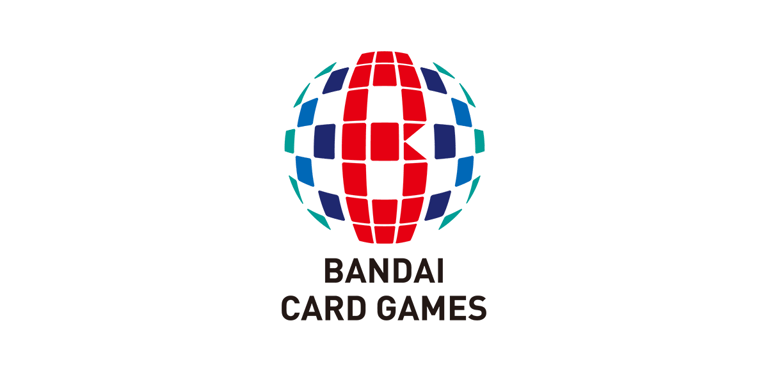Bandai's Top 3 Most Successful Card Games: Sales and Revenue from 2017 to 2025


Bandai's Most Successful Card Games
Bandai Namco Holdings Inc., a powerhouse in the entertainment industry, has carved out a significant presence in the trading card game (TCG) and digital card game markets, particularly in Japan. Known for leveraging its iconic anime franchises, Bandai has produced several successful card games that resonate with fans globally. This article explores Bandai’s three most successful card games in terms of sales and revenue from 2017 to 2025: Dragon Ball Super Card Game, One Piece Card Game, and Digimon Card Game. While precise revenue figures for individual card games are scarce due to Bandai’s reporting structure, market share data, intellectual property (IP) sales, and industry trends provide a clear picture of their success.
1. Dragon Ball Super Card Game + Fusion World
The Dragon Ball Super Card Game, launched in 2017 has a big time advantage over its competition, yet is still an important part of Bandai’s card game portfolio, capitalizing on the global popularity of the Dragon Ball franchise. This TCG combines strategic gameplay with collectible elements, featuring characters from the DragonBall anime and manga series. The Fusion World reboot gives the Dragonball Card Game an additional sales advantage over its competition but serves as a simpler more beginner friendly version for those that want to play a Dragonball Card Game but don't want to be overwhelmed by the original Super Card Game.
Sales and Revenue (2017–2025)
Market Share: In fiscal year 2024, Bandai Namco held a 12.7% share of the Japanese card game market (down from 20% in 2016) and a commanding 54% share of the digital card game market. The Dragon Ball Super Card Game is a major contributor to these figures, alongside other titles.
IP Sales: By March 31, 2024, the Dragon Ball IP generated approximately $930 million USD in global sales across all Bandai Namco products, with the card game being a significant driver alongside video games and merchandise. In fiscal year 2023, Dragon Ball IP sales reached $960 million USD, indicating strong performance in the years leading up to 2024.
Trends (2017–2025): Since its launch, the Dragon Ball Super Card Game has consistently driven sales through regular set releases and promotional events. In 2023, Bandai’s toy and hobby segment, which includes physical card games, reported net sales of $3.37 billion USD, with Dragon Ball as a key contributor. The game’s success continued into 2024, though specific card game revenue is not isolated in reports. Forecasts for 2025 project toy and hobby segment sales at 530 billion JPY (approximately $3.6 billion USD), suggesting sustained growth.
Global Impact: The game’s popularity extends beyond Japan, with strong sales in North America and Europe, supported by localized releases and competitive events like the Dragon Ball Super Card Game World Championship. The global TCG market was valued at $7.8 billion USD in 2025, with Dragon Ball Super among the top performers.
Estimated Sales: Assuming TCGs account for 20–30% of Dragon Ball IP sales (conservative, given the IP’s diverse revenue streams like video games), DBSCG (including Fusion World) likely generated $1.5–2 billion USD in cumulative revenue from 2017 to June 2025. Unit sales (e.g., booster packs, decks) are likely the highest among Bandai TCGs due to the game’s longevity and global distribution.
The Dragon Ball Super Card Game thrives due to its alignment with a globally recognized IP, frequent expansions, and a dedicated player base, making it Bandai’s most lucrative card game.
2. One Piece Card Game
Launched in July 2022, the One Piece Card Game quickly became a standout in Bandai’s lineup, leveraging the massive popularity of the One Piece anime and manga. The game features strategic deck-building and vibrant artwork, appealing to both casual fans and competitive players. Its rapid rise is evident in its dedicated tournaments and growing international presence.
Sales and Revenue (2022–2025)
Market Performance: Since its release, the One Piece Card Game has been a major success in Japan and the West. In 2023, Bandai reported strong sales in the toy and hobby segment, partly attributed to the game’s launch. By 2024, the game contributed to the segment’s $3.37 billion USD in net sales, with One Piece as a key IP alongside Dragon Ball and Gundam.
IP Contribution: While specific revenue for the One Piece Card Game is not isolated, the One Piece IP has been a consistent performer. In 2024, One Piece sales were significant within the toy and hobby segment, which saw stable year-on-year performance. The game’s large-scale tournaments, including an annual World Championship in Japan, have boosted its visibility and sales.
Growth Trajectory: The game’s success continued into 2025, with industry reports noting its strong performance in both physical and digital formats. The global card game market is projected to reach $3.4 billion USD by 2029, with One Piece contributing to Bandai’s 12.7% share of the Japanese market in 2024.
Regional Success: The game has seen particularly strong sales in Japan, the United States, and Europe, driven by the One Piece franchise’s global fanbase and Bandai’s aggressive marketing, including event-driven releases and collector’s editions.
Estimated Sales: Assuming TCGs account for 30–40% of One Piece IP sales (higher than Dragon Ball due to the card game’s prominence since 2022), cumulative revenue from July 2022 to June 2025 is approximately $500–700 million USD. Unit sales are significant but likely lower than DBSCG due to the shorter three-year timeframe.
The One Piece Card Game has quickly established itself as a major player in the TCG market, benefiting from its recent launch and the enduring appeal of its source material.
3. Digimon Card Game
The Digimon Card Game, relaunched in 2020, builds on the legacy of the Digimon franchise, offering fast-paced gameplay and collectible cards featuring iconic digital monsters. Aimed at both nostalgic fans and new players, the game has gained traction through regular expansions and competitive play.
Sales and Revenue (2020–2025)
Market Share: The Digimon Card Game contributes to Bandai’s 12.7% share of the Japanese card game market and 54% share of the digital card game market in 2024. While not as dominant as Dragon Ball Super, it remains a key title in Bandai’s portfolio.
IP Sales: The Digimon IP has historically been less lucrative than Dragon Ball or Gundam but still significant. In 2024, Digimon contributed to the toy and hobby segment’s $3.37 billion USD in net sales, with the card game playing a notable role alongside toys and video games.
Sales Trends: Since its 2020 relaunch, the Digimon Card Game has seen steady growth, particularly in Japan and North America. Bandai’s focus on international releases has bolstered its performance, with sales benefiting from the franchise’s nostalgic appeal. In 2023, the toy and hobby segment saw an 11.3% increase in net sales, partly driven by Digimon products. Forecasts for 2025 project continued growth in the segment, with Digimon as a steady contributor.
Competitive Scene: The game’s competitive tournaments, such as the Digimon Card Game World Championship, have driven collector interest and sales, though its market presence is smaller than Dragon Ball Super or One Piece.
Estimated Sales: Digimon’s TCG likely accounts for a smaller share of the toy and hobby segment. Assuming it represents 5–10% of Digimon’s toy and hobby sales within the segment’s $3.37 billion USD (FY2024), cumulative revenue from 2020 to June 2025 is approximately $200–300 million USD. Unit sales are lower than DBSCG and One Piece due to a smaller fanbase and shorter prominence.
The Digimon Card Game benefits from a dedicated fanbase and Bandai’s strategic focus on expanding its international reach, securing its place as one of Bandai’s top card games.
Conclusion
Top Seller: Dragon Ball Super Card Game (~$1.5–2 billion USD, 2017–2025).
Second: One Piece Card Game (~$500–700 million USD, 2022–2025).
Third: Digimon Card Game (~$200–300 million USD, 2020–2025).
Bandai Namco’s Dragon Ball Super Card Game, One Piece Card Game, and Digimon Card Game stand out as its most successful card games from 2017 to 2025, driven by strong IP recognition, strategic marketing, and global fanbases. The Dragon Ball Super Card Game leads with its massive revenue contribution, bolstered by the Dragon Ball IP’s $930 million USD in sales in 2024. The One Piece Card Game has rapidly gained ground since its 2022 launch, while the Digimon Card Game maintains steady performance through nostalgia and competitive play. As Bandai continues to innovate with new sets and digital integrations, these card games are poised to remain central to its toy and hobby segment’s growth, projected to reach $3.6 billion USD in 2025.
Sources:
Statista: Bandai Namco’s share of the digital card game market in Japan FY 2016–2024.
Statista: Bandai Namco’s share of the card game market in Japan FY 2016–2024.
ResearchAndMarkets.com: Trading Card Games Market Report 2025.
Statista: Bandai Namco’s major IP sales by brand worldwide 2024.
Statista: Bandai Namco’s net sales in the toy and hobby segment FY 2019–2025.
Naavik: Bandai Namco’s Winning Formula.
PocketGamer.biz: Bandai Namco’s sales soar while profits plummet.
Statista: Bandai Namco statistics & facts.
